Resource Center
The Transit Workforce Center is pleased to host a curated collection of publications and other materials to assist stakeholders engaged in transit workforce development. The Resource Center includes case studies, training materials, research reports, and other materials of interest, including publications produced by federal government agencies, transit organizations, and independent research entities. Resources may be filtered by topic, resource type, and transit mode. This TWC blog post explains how to use the Resource Center.
We are continuing to update the Resource Center regularly. Please contact us via the Request Help menu option if you would like assistance using the Resource Center or are looking for resources on a particular topic. We also welcome suggestions of topics or specific resources to add.
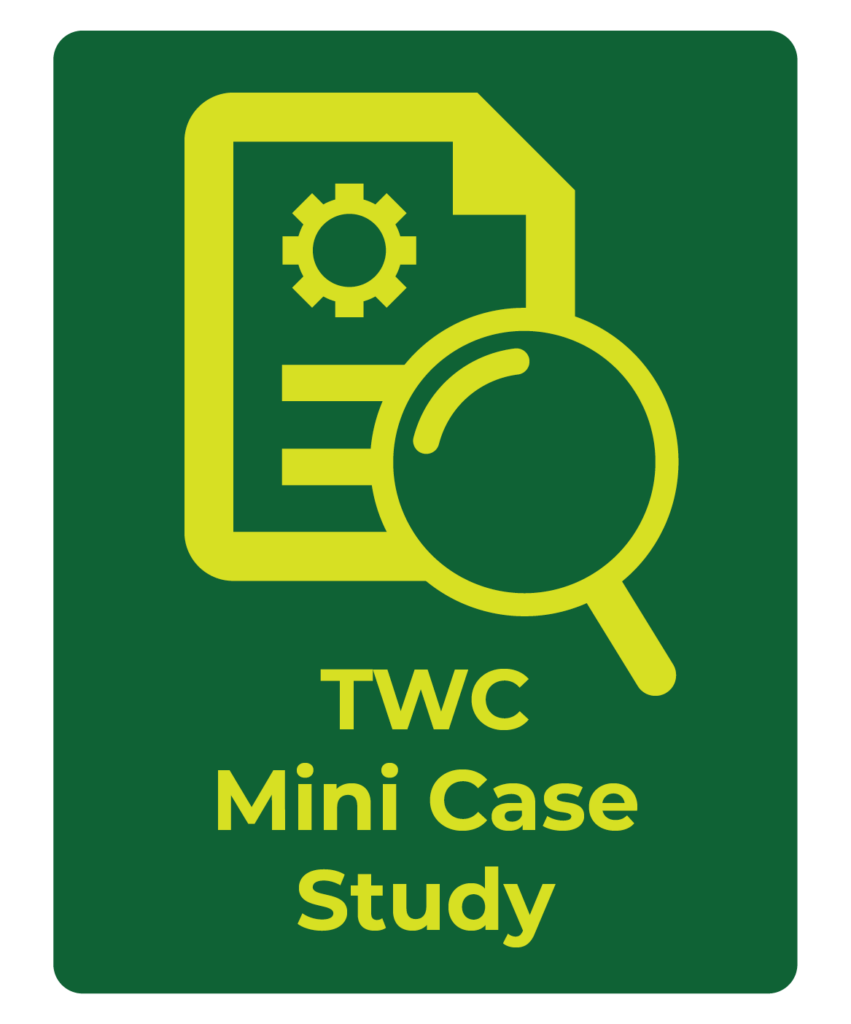
The Power of Partnership: Automotive Technology/Collision Career Technical Education Program
This multimedia case study details an internship program developed by the Central Ohio Transit Authority (COTA) and Transport Workers Union (TWU) Local 208. This resource contains a brief written summary, presentation slides, and video of a COTA-TWU Local 208 presentation.
Transit Workforce Center; Central Ohio Transit Authority (COTA); Transport Workers Union Local 208
June 2022
LEARN MORE
To meet its need for vehicle maintenance technicians, COTA leadership partnered with TWU Local 208 and Columbus City Schools to provide a Vehicle Maintenance Internship Program, helping students already enrolled in an automotive program to develop additional technology competencies and prepare them for entry level positions. The COTA Vehicle Maintenance Internship Program provides career technical center high school students who have completed their junior year in a participating career-technical program the opportunity to work as paid interns in the Vehicle Maintenance Department at COTA. Students receive classroom training, hands-on training, laboratory experiences, and are partnered with mentors in preparation to enter the workforce as entry level automotive/collision technologies service technicians. From this foundation, COTA has now established a state-registered pre-apprenticeship and apprenticeship program to support vehicle technician hiring, retention, and workforce development.
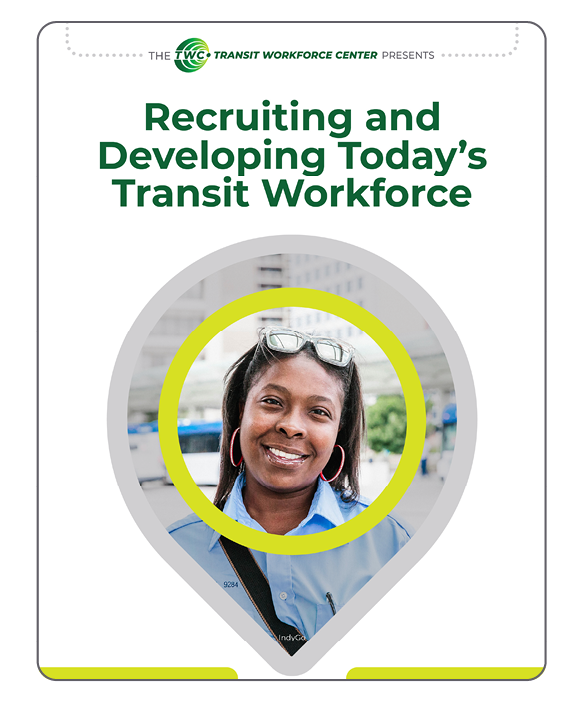
Strategic Workforce Planning in Transit: Recruiting and Developing Today’s Transit Workforce
This is the second in the Transit Workforce Center’s webinar series on strategic workforce development planning in transit. It focuses on how transit agencies and partner organizations are working to meet the significant recruitment challenges across the country and how to best turn these challenges into opportunities to reach, attract, and retain a diverse workforce.
Transit Workforce Center
June 2022
TOPICS: Apprenticeship, Hiring and Recruitment, Labor-Management Partnerships, Mentorship, Retention, Workforce Shortage
Linked below are a video recording of the webinar, the associated slides, and a webpage where all past TWC webinars are available.
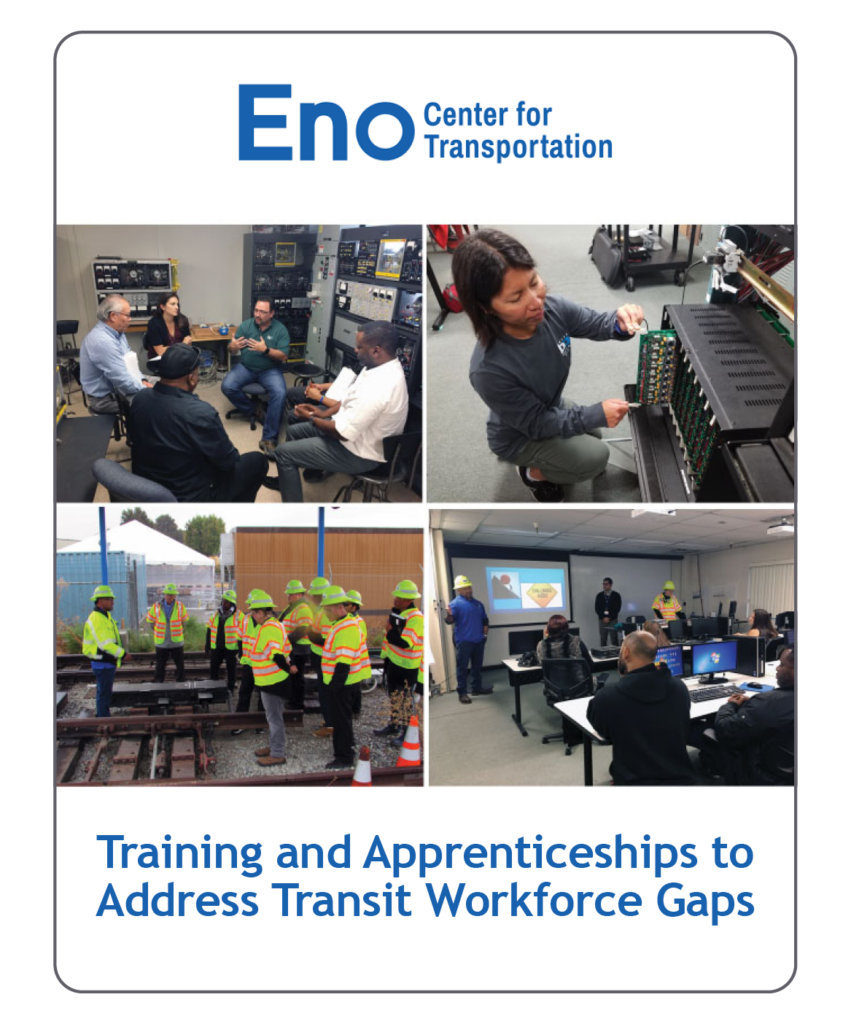
Training and Apprenticeships to Address Transit Workforce Gaps
This piece, penned by Jack Clark of the International Transportation Learning Center (ITLC), explores the role of training and apprenticeship programs in meeting workforce needs in transit, with a focus on operators. It discusses a few leading examples of apprenticeship programs in transit, as well as the role of mentorship in a strong apprenticeship program.
Eno Center for Transporation
August 2019
TOPICS: Apprenticeship, Career Pathways, Mentorship, Training
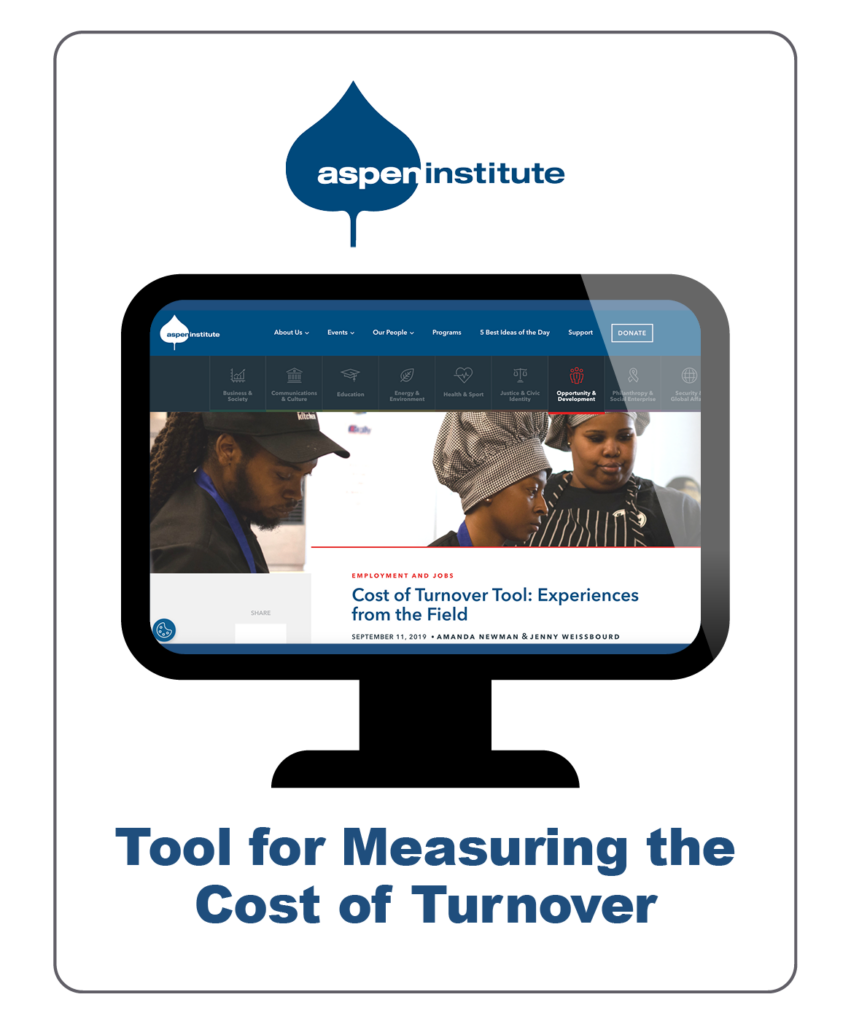
Tool for Measuring the Cost of Turnover
This Cost of Turnover Tool is a simple, “back of the envelope” calculator to help estimate how much it costs to replace staff. The tool can be useful for transit agencies looking to understand the costs of a low retention rate, or those looking to calculate the return-on-investment of mentoring or apprenticeship programs.
Aspen Institute
March 2019
LEARN MORE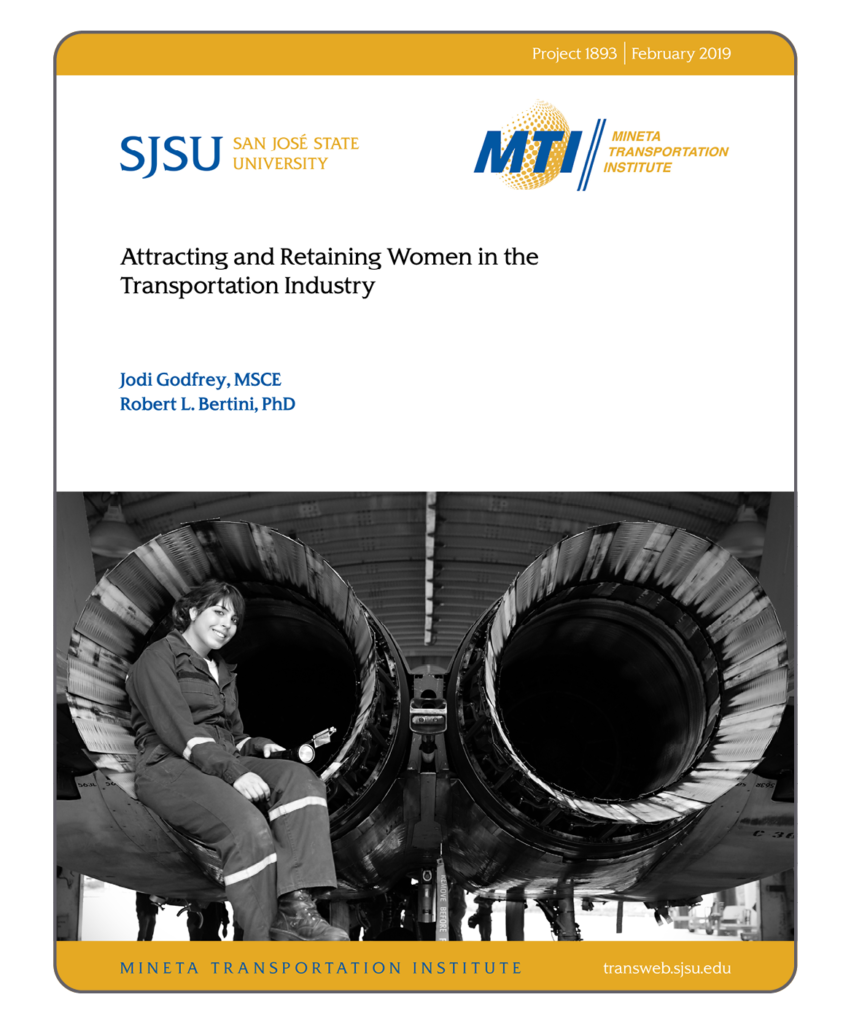
Attracting and Retaining Women in the Transportation Industry
This study synthesizes previously conducted research and identifies additional research needed to attract, promote, and retain women in the transportation industry, particularly emphasizing the importance of community-orientation and mentoring.
Mineta Transportation Institute
February 2019
LEARN MORE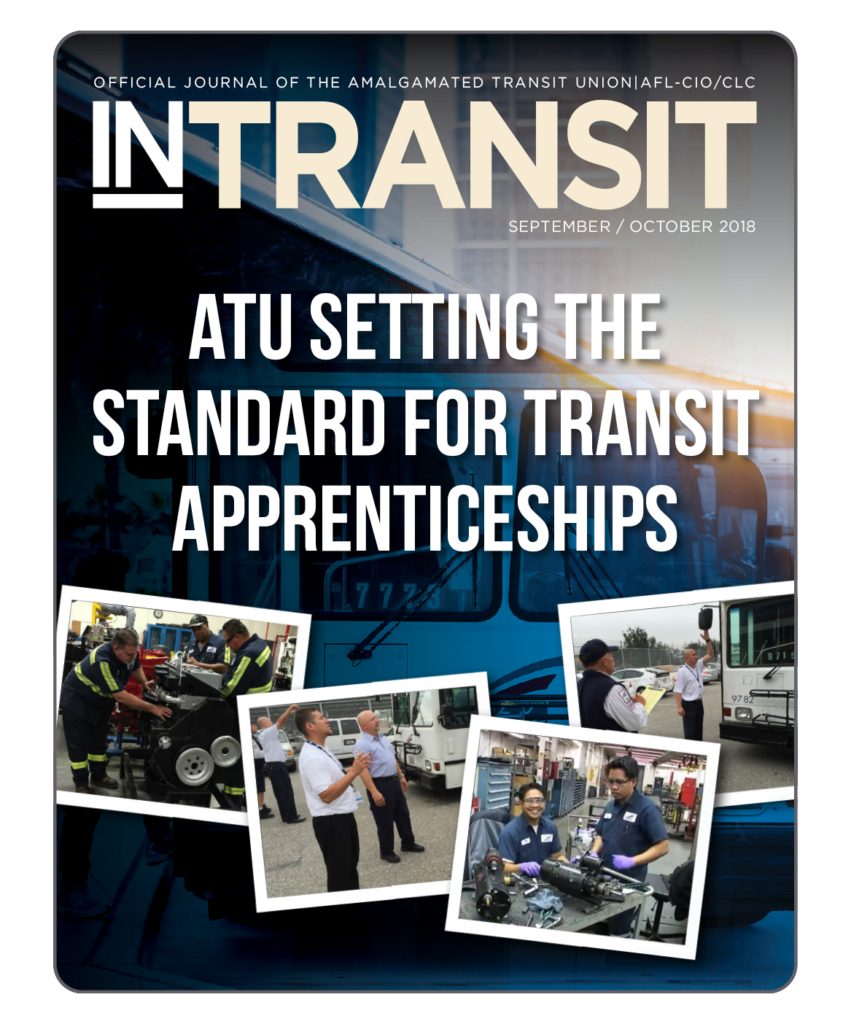
Setting the Standard for Transit Apprenticeships
This article in In Transit summarizes The Amalgamated Transit Union’s (ATU’s) and the International Transportation Learning Center’s (ITLC’s) efforts to promote apprenticeship program development. It discusses apprenticeship programs at several transit agencies and ATU locals, as well as the role of mentorship in a successful apprenticeship program.
Amalgamated Transit Union
September 2018
LEARN MORE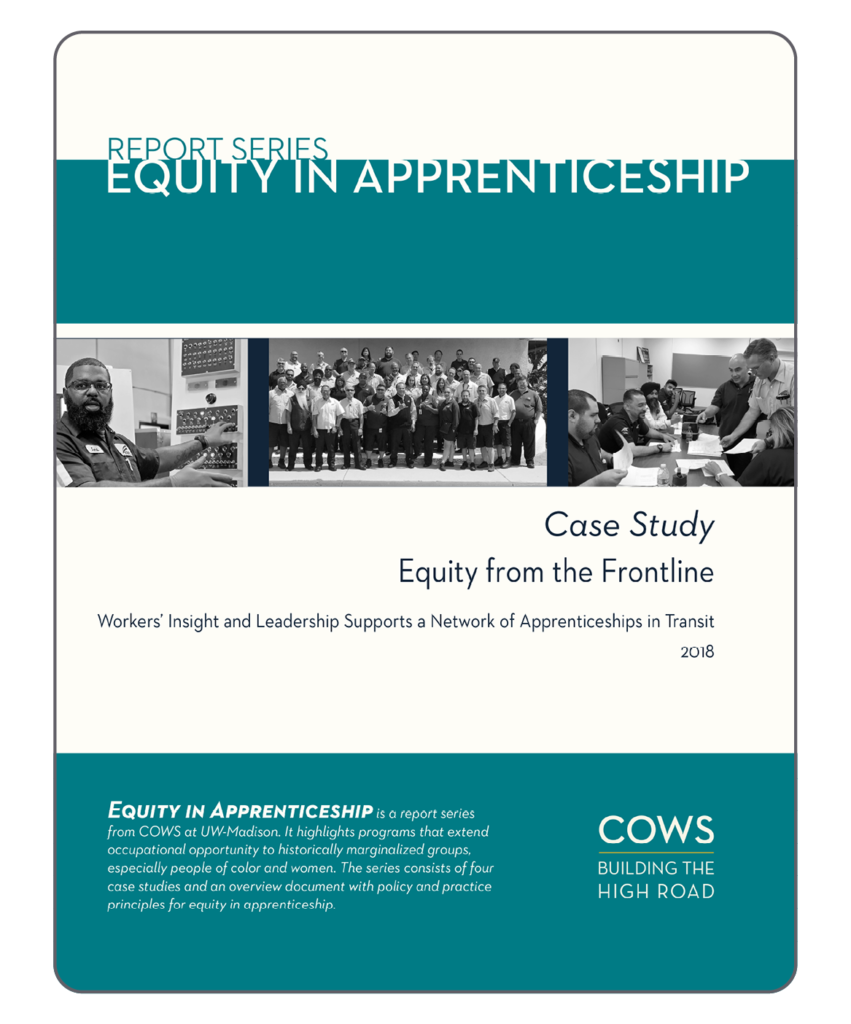
Equity from the Frontline: Workers’ Insight and Leadership Supports a Network of Apprenticeships in Transit
This case study, part of the Equity in Apprenticeship report series from COWS at UW-Madison, explores the Joint Workforce Investment in the South Bay Valley Transportation Authority, which has developed a web of apprenticeships and advancement opportunities. The series highlights programs that use apprenticeship and mentorship to extend occupational opportunity to historically marginalized groups, especially people of color and women.
COWS at University of Wisconsin
August 2018
TOPICS: Apprenticeship, Career Pathways, Diversity, Equity, Inclusion, and Access, Hiring and Recruitment, Mentorship, Trainer and Mentor Development
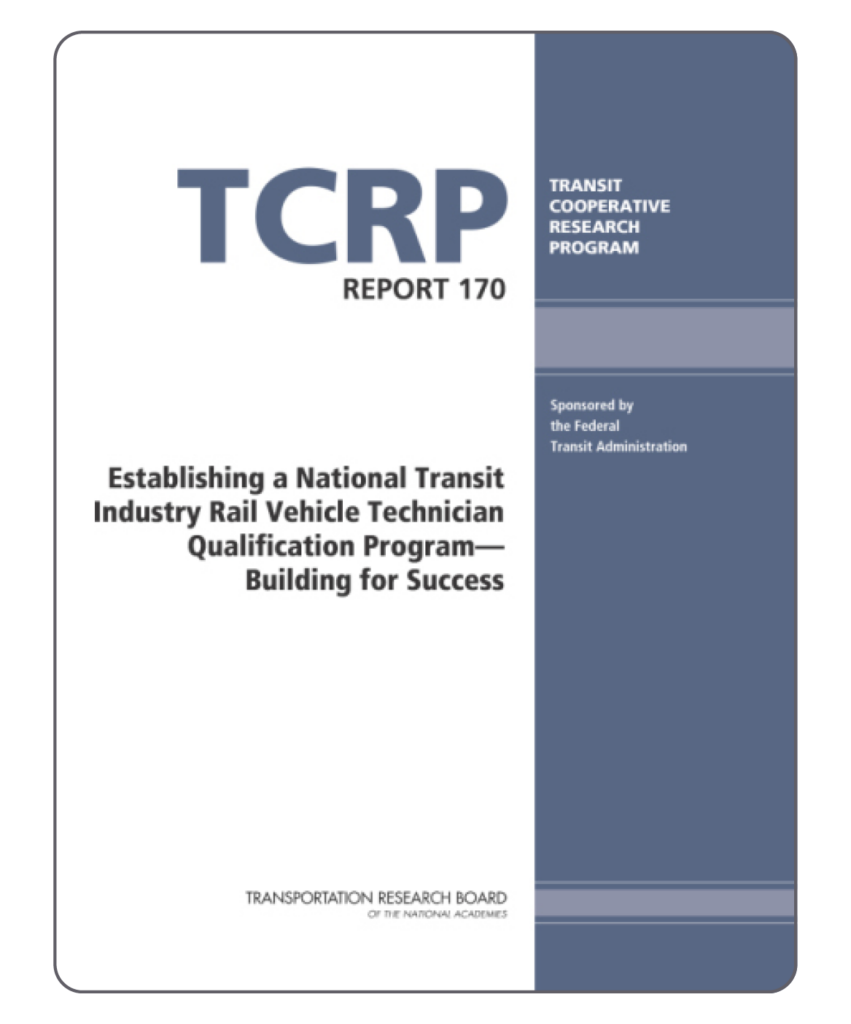
Establishing a National Transit Industry Rail Vehicle Technician Qualification Program—Building for Success
TRB’s Transit Cooperative Research Program (TCRP) Report 170: Establishing a National Transit Industry Rail Vehicle Technician Qualification Program—Building for Success describes a system of qualification that has been developed for rail vehicle technicians. This qualification system is available for implementation through the Transportation Learning Center.
The program integrates national training standards, progressive classroom curricula and introductory courseware, on-the-job learning modules, an apprenticeship framework that combines well-designed sequences of learning, mentoring to support learners, and coordination of classroom and on-the-job learning. The qualification system also includes written and hands-on certification assessments to confirm that technicians have the practical knowledge and skills required to perform their jobs at the highest level of expertise.





 CLEAR
CLEAR

